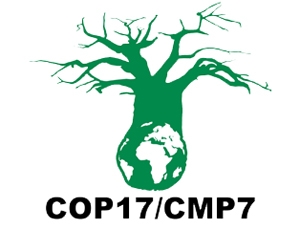
The high-level highly publicised UN climate change talks ended yesterday in Durban, South Africa. Most governmental and non-governmental organisations accept that climate change is inevitable and that we have to do something about it, i.e. have mitigation and adaptation measures in place. If the world ignore the changes and carry on with a business as usual approach, the consequences could be catastrophic. Many regions of the world have already been experience climatic change, which has resulted in high human and economic costs. It is therefore in everybody’s interest to do something about it, hence the UN conference. The last two conferences in Copenhagen and Cancun resulted in non-legal-binding agreements and there was a lot of pressure from all corners for leaders to work harder at reaching a legally-binding deal in Durban. According to reports from various media, a deal was finally agreed in Durban to push for a new climate treaty, but is it a big deal?
There were a few clashes between the European Union (EU) and developing countries. At one point during the talks, Connie Hedegarrd, the EU Climate Change Commissioner, said she was prepared to offer developing countries the prize they had sought for many years – a continuation of the Kyoto protocol, the only treaty that commits rich countries to cut greenhouse gases. But the price of the offer was for all nations to agree to be "legally bound" to a new agreement by 2020. The Guardian report on the conference said there were cheers as she said: "We need clarity. We need to commit. The EU has shown patience for many years. We are almost ready to be alone in a second commitment period to the Kyoto protocol. We don't ask too much of the world that after this second period all countries will be legally bound."
India’s Environment Minister’s reply was “Am I to write a blank cheque and sign away the livelihoods and sustainability of 1.2 billion Indians, without even knowing what the EU 'roadmap' contains? I wonder if this is an agenda to shift the blame on to countries who are not responsible for climate change. I am told that India will be blamed. Please do not hold us hostage." He was backed by China, who asked what qualifies the EU to tell them what to do. The Venezuelans, represented by their Ambassador, was also against the UN and accused them of ignoring the views of developing countries and said that it was immoral to ask developing countries to sell themselves for 100 billion dollars.
The EU ‘roadmap’ would establish a new over-arching agreement that would commit all countries to emission cuts. The main objection developing countries have is to the fact that developed countries want emerging economies, e.g. China and India, to be equally bound legally as developed countries; after all China is seen by some developed countries as the biggest emitter. The talks over-run by 36 hours and in the end of the fierce exchanges between the EU, on one side, and India and China on the other, the Brazilian delegation saved the day by suggesting a compromise, which resulted in the EU and India agreeing on a 'roadmap', which commits countries to negotiate either a protocol, another legal instrument or an agreed outcome with legal force. Several developing countries spoke out strongly in favour of the EU proposals, including Brazil and Colombia, rejecting calls to downgrade the legal status of any agreement, said the Guardian report of the meeting.
South Africa's president Jacob Zuma said he is happy that issues that had taken so long to resolve have been resolved on their soil and Greenpeace's Chief Policy Advisor Ruth Davis said "this deal is a lot better than no deal." Follow this link to read a summary of politicians and environmentalists' reaction to the new climate treaty.
However, environmental groups said negotiators have failed to show the ambition needed to cut emissions by levels that would limit global temperature rises to no more than 2 oC, which is the level thought to be necessary to avoid dangerous climatic change.
In my view, it is good to see that the EU and some developing nations are taking steps to make sure every country is on board with regard to reducing carbon emissions. It is a shame that India and China put up such a fight to come to an agreement. I think everybody should take action, starting from local actions. For example, the County Council where I live in the UK has a Carbon Management Plan in place to make the Council buildings more energy efficient by reducing their carbon footprint. They say the reason for taking action, aside from the moral and environmental case, is the financial implications of not taking action. It is predicted that energy price will go up from the present already very high level. Failure to start taking action now will leave the Council exposed to a number of financial risks due to increased energy and fuel costs and possible fines for not dealing with the carbon emission issue.
Link to The Guardian article.
